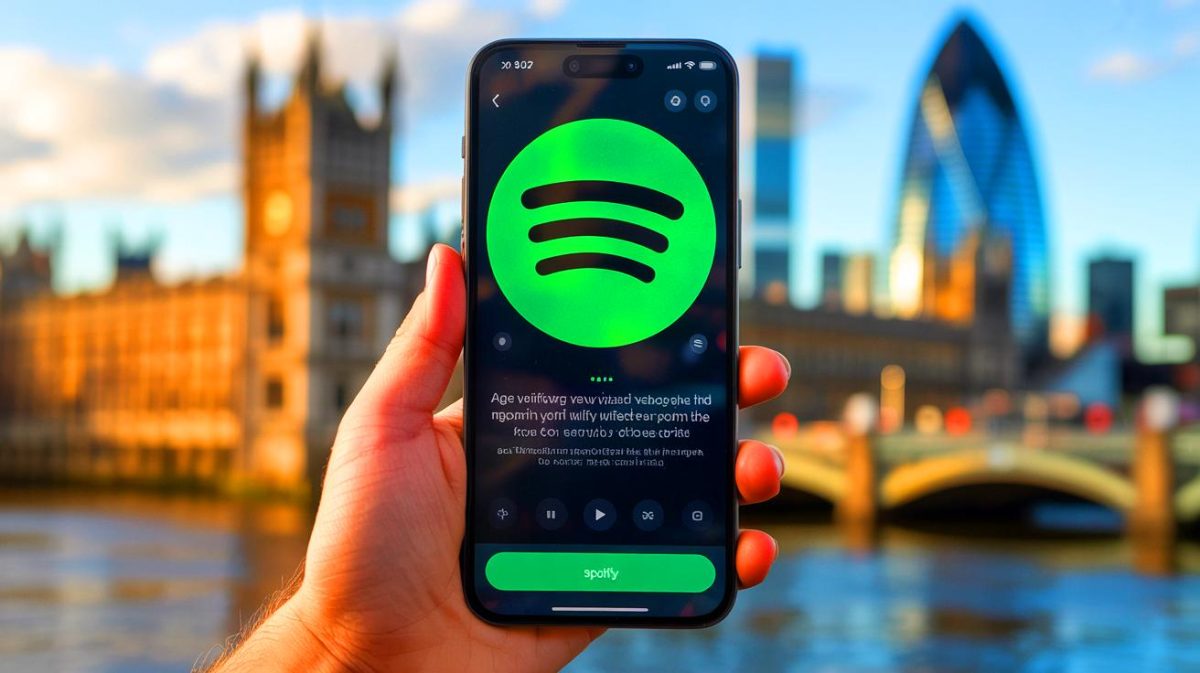| IN A NUTSHELL |
|
The UK’s Online Safety Act, recently enacted, is creating significant shifts in how digital platforms operate, particularly in the realm of age verification. Spotify, a leading music streaming service, has implemented new age-check measures, requiring UK users to verify their age using facial scans or photo IDs. This change aims to comply with the law’s stringent demands, which are reshaping access to age-restricted content. As these measures take hold, they raise important questions about privacy, security, and the broader implications for digital users in the UK.
Spotify’s New Age Verification System
Spotify has partnered with Yoti, a technology company specializing in digital identity verification, to introduce a facial scan system. UK users attempting to access age-restricted content on Spotify must now undergo a biometric age estimation via their device’s camera. If the facial scan fails or is deemed inaccurate, users have the alternative option of uploading a government-issued photo ID.
This approach is not unique to Spotify. In 2023, platforms like xHamster also adopted similar systems to comply with age-verification laws in regions such as Utah. The consequences of failing to verify age on Spotify are severe; users risk losing access to explicit content and potentially having their accounts deactivated and deleted. Spotify emphasizes that its minimum age requirement is 13, and failure to meet this or prove eligibility results in immediate action.
The Broader Impact of the Online Safety Act
The introduction of the Online Safety Act has prompted numerous companies to enforce more stringent age checks. This legislation mandates digital platforms to restrict access to content considered harmful to minors, such as explicit music and pornography. Non-compliance can result in hefty penalties, including fines of up to 10 percent of a company’s global revenue and possible criminal charges.
The impact of these regulations is evident. The Age Verification Providers Association (AVPA) has reported a substantial increase in age verification checks, with an additional five million checks occurring daily since the law’s implementation. This surge reflects the law’s immediate influence on digital behavior and its role in shaping online safety protocols.
Rising VPN Usage and Privacy Concerns
As the Online Safety Act takes effect, there has been a noticeable increase in the use of virtual private networks (VPNs) among UK internet users. VPNs allow users to bypass regional content restrictions, and their popularity has surged since the law’s enactment. Notably, four of the top five free applications on Apple’s UK App Store are now VPNs, with Proton VPN experiencing an 1,800% increase in downloads.
While the legislation aims to protect minors, the tools used for enforcement, such as biometric scans and account deactivations, have sparked significant debate. Privacy advocates express concerns over the potential misuse of biometric data and the accuracy of facial recognition technology. Additionally, there are questions about whether such measures unfairly restrict access for legitimate users.
Future Implications for Digital Platforms
Spotify has not yet clarified whether it intends to expand these age verification measures beyond the UK. However, the changes prompted by the Online Safety Act could set a precedent for other countries considering similar regulatory frameworks. As digital platforms navigate these new requirements, they must balance compliance with user privacy and accessibility.
The ongoing dialogue surrounding the Online Safety Act highlights the challenges of implementing effective online safety measures while respecting user rights. The evolving landscape of digital regulation will likely continue to impact how platforms operate and how users interact with digital content.
The implementation of the UK’s Online Safety Act marks a pivotal moment in digital regulation, prompting companies like Spotify to adapt swiftly. This shift raises important questions about the future of digital content access and the balance between safety and privacy. As technology advances and regulatory measures evolve, how will digital platforms ensure both compliance and user satisfaction in an increasingly complex digital environment?
Did you like it? 4.7/5 (20)







Je ne veux pas montrer ma tête à Spotify juste pour écouter de la musique… 😒
C’est un sacré bazar, tout ça juste pour écouter des chansons explicites?
Est-ce que quelqu’un a déjà réussi à passer la vérification faciale du premier coup ?
Merci Spotify pour me faire sentir comme un criminel juste pour écouter ma playlist. 😅
Quelqu’un a-t-il des recommandations de VPN fiables ? 👀
Ça sent un peu le Big Brother, non ?